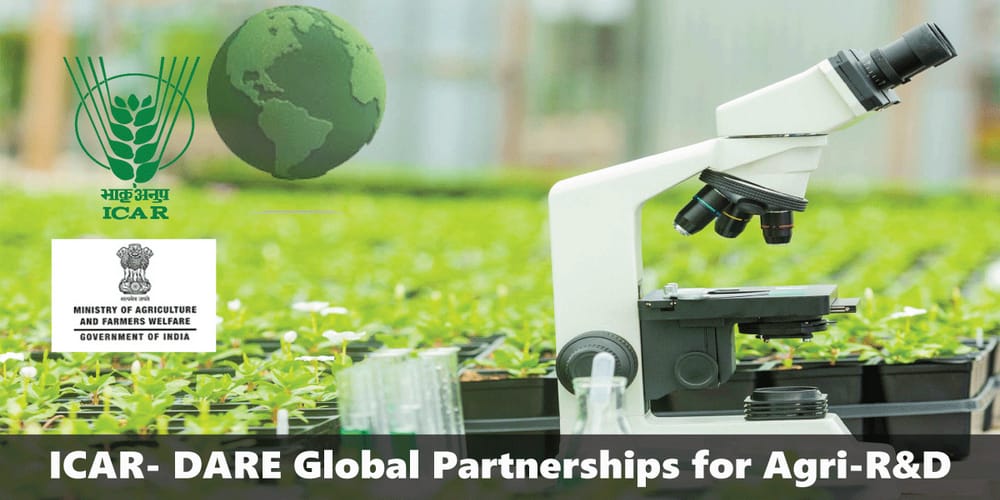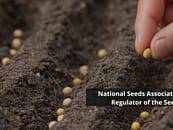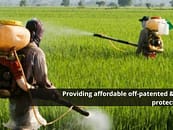
ICAR-DARE: Building a strong International Cooperation for World-Class Agri Research
December 14, 2020ICAR is an independent body under the Ministry of Agriculture and Farmers Welfare’s Department of Agricultural Science and Education (DARE). It was established on 16 July 1929 as a registered society under the Societies Registration Act, 1860, in reaction to the Royal Commission on Agriculture’s report. It was formerly known as the Imperial Council of Agricultural Science.
ICAR-DARE was instituted to address the international cooperation related to all aspects of agricultural research and education by The Ministry of Agriculture and Farmers welfare in 1973 . To implement the same, DARE has been using the Indian Council of Agricultural Research (ICAR), a premier autonomous organisation which has a vast network of 102 Research Institutes, 717 Krishi Vigyan Kendra, and multiple centres dedicated to R&D in Agriculture and allied sectors.
The Council is the country’s highest body for organizing, directing, and overseeing agricultural research and education, including horticulture, fisheries, and animal sciences. This is one of the world’s largest national agricultural systems, with 101 ICAR institutes and 71 agricultural universities spread throughout the region.It has played a critical role in fostering agricultural higher education excellence. It works on cutting-edge research and technology growth, and its scientists are world-renowned experts in their fields.
Knowledge and information sharing for mutual benefit is not a new phenomenon in human civilization. As trivial as it sounds, a lot of technology and utilities might not have been accessible to us if it weren’t for the sharing of resources across national boundaries. This need was realized in the area of Agricultural R&D, and to achieve the same, existing apex bodies were empowered to reach beyond the national boundaries to seek and share cutting edge technology for agricultural development.
ICAR-DARE coordinates with International partners through instruments like MOU and Work plans signed with various International organisations, Foreign Universities and institutions. Such cooperation is bilateral where MOUs are signed either between the Government of India (represented by DARE) and the Government of another country (represented by their department handling agriculture), or between the ICAR and another foreign autonomous body/Institute/University. Various scholarships and fellowships are also provisioned for exchange programs for students.
Such collaborative efforts have yielded great results in the past. Green Revolution can also be attributed to one such successful collaboration which resulted in new varieties of wheat and rice from CIMMYT and IRRI respectively. In the year 2019-20, 35 new crop varieties were identified through CGIAR partnership, and over 100 KVKs were benefited from the new technology transfers. DARE-ICAR through its partnerships is on its way to enrich the agricultural domain by research leading to technological advancements and achieve sustainable agriculture and global food security.
The ICAR has been reviewing its visions and objectives on a daily basis to keep up with the changing world. In the final year of the twentieth century, the planning of the ‘Vision 2020 paper’ was the first concerted attempt to visualize the threats and prospects and devise its own plan. After five years, the next effort was made with the release of the “Perspective Strategy” and the “ICA.”
Focus Agritech’s Outlook
Agricultural development and food security has been a primary concern that determines an economy’s growth trajectory. With Global Outreach programs, India is on its way to reinforce its position as a global leader in Asia and beyond. These collaborations have shown positive results in the past for all the participating units and would definitely accelerate the process of research and technological development in the area of agriculture.
Key Partners of ICAR-DARE
CABI (Centre for Agriculture and Biosciences International), FAO (Food and Agriculture Organization), AVRDC (World Vegetable Centre), NACA (Network of Aquaculture Centres in Asia-Pacific), APAARI (Asia-Pacific Association of Agriculture Research Institutions), UN-CAPSA (Centre for Alleviation of Poverty through Sustainable Agriculture), APCAEM (Asian and Pacific Centre for Agricultural Engineering and Machinery) and ISTA (International Seed Testing Association), CIMMYT (International Maize and Wheat Improvement Centre), International Rice Research Institute (IRRI)
Recent Article
NABARD has a vision of holistic Rural Development






